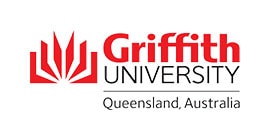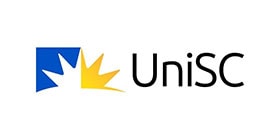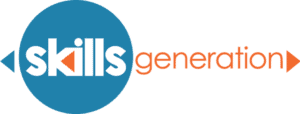

Gain the skills, knowledge and confidence you need to take a leadership role in developing and delivering meaningful services to support those vulnerable people at risk in the community
CHC50321 Diploma of Child, Youth and Family Intervention develops the skills needed to improve the living and emotional circumstances of children and young people at risk and their families. This qualification reflects the role of workers in out-of-home care facilities and settings related to child protection and family support work. It includes all aspects of case management, communication, developing a professional practice and working with people who have mental health issues.
Work will be performed under limited supervision or within a team, and workers are responsible for planning and prioritising their own work program to achieve targets. This qualification is for people who are wanting to pursue supervisory and management level positions, and the course content reflects the role of people with responsibility for the development and outcomes of programs and services. They may, depending on the focus of their role, supervise other workers and carry out activities related to improvement of personal living and emotional circumstances of a child or young person at risk. They may exercise legal authorities and delegated decision making on relevant statutory matters.
This course provides a career pathway for those who have already completed CHC40321 Certificate IV in Child, Youth and Family Intervention.
You will:
Child, youth and family intervention work is focused on providing activities and support related to improving the personal living and emotional circumstances of children or young people at risk and their families. Workers build strong professional relationships with those they support to reduce the risk of their living environments by using advanced case management and interpersonal skills. Work across the sector is varied and can involve working in people’s homes, residential facilities and community-based settings.
Key tasks include:
This work is often undertaken through employment in government services and broader community service agencies. Workers will:
18 units of study – 11 core and seven elective units of competency. No pre-requisites.
The Australian Qualifications Framework determines that the duration of this qualification is 1 – 2 years, however with both face-to-face training, and flexible online learning, learners are typically completing within the first 6 – 12 months. How quickly an individual is able to complete the course will depend on how fast they work through the content, their commitment to learning and their level of competence.
Several of the units in this course require you to complete practical tasks and assessments within the workplace. Students must complete at least 100 hours of work-placement. As many students studying the Diploma will already be in full-time employment in community services, it may be that their current experience can be used to meet these requirements. You will need to review your work history with the trainer prior to commencing the course to see if your experience can be used. Where you are not currently employed in a relevant community services organisation you will need to find your own work experience with an organisation approved by Skills Generation. It is important you commence this process at the beginning of the course. Skills Generation staff and your trainer will be available to assist you in identifying relevant organisations. You will be responsible for the cost of any travel and accommodation if required for your work placement.
Please refer to the relevant Government website/s for the most up to date information regarding any restrictions and vaccination requirements that may be in place, please also be aware that work placement employers may have certain requirements in relation to vaccinations or other restrictions in addition to any mandated by government. If you have any questions regarding requirements for work placement, please contact Student Services [email protected]
On successful completion of this course you will receive the nationally recognised qualification:
CHC50321 Diploma of Child, Youth and Family Intervention
The qualification is awarded by Skills Generation RTO 41008, with training and assessment delivered by Skills Generation or an approved Third Party training provider on behalf of Skills Generation.

Learners undertaking this qualification must demonstrate academic suitability by providing evidence of:
Skills Generation Student Services can assist you as needed. Please talk to our friendly staff.
The Commonwealth Government requires all learners undertaking nationally recognised, accredited training courses to have a Unique Student Identifier (USI). Learners are unable to enrol without their USI.
If you are currently working, or have previously worked in a relevant industry, you may be eligible for Recognition of Prior Learning (RPL). RPL applies where you have workplace experience/competency that can be formally assessed against the units of competency in this course. If you wish to undertake an RPL process, please discuss with our Student Services enrolments team [email protected].
This course currently attracts government funding for eligible students. Students who access funded training pay a co-contribution fee that represents a small fraction of the total course fee!
Students eligible for subsidised training under government funding programs can normally only access the funding once, so it is important that you choose your course carefully.
Eligibility criteria for funding can be found on our Funding and Fees page or contact us to discuss your circumstances and determine your eligibility.
Students who are not eligible for subsidised training pay the full course fee.
Payment Plans are available through the PaySmart payment platform making it easy for students to make weekly, fortnightly or monthly payment instalments.



On completion of this course you may want to further enhance your skills and knowledge and your job promotion prospects by going on to study:
Skills Generation proudly partners with select Australian Universities to provide pathway options for university study. University pathways include guaranteed entry and credit for Skills Generation graduates of Certificate IV and Diploma qualifications.




If you need more information about a course, want to see if you qualify for government funding or have any other questions, we’re here to help!

Proudly Australian Owned and Operated
PO Box 5419, Maroochydore BC QLD 4558 Australia
17/1 Newspaper Place Maroochydore QLD 4558 Australia